In the Autumn of 2022, I broke my right proximal humerus in twelve places. Running for the No. 88 — the Clapham Omnibus — late for an interview with a French television crew in Covent Garden, I slipped on the pavement (wet leaves underfoot) and went flying. It didn’t hurt especially, although it felt like I had been wacked senseless by a giant, invisible sledgehammer. Nauseous and out of breath, I lay on the pavement for about five minutes. The bus drove off, and a dishevelled gentleman came up to me and asked for money. To cut a long story short, I picked myself up, dusted myself down, waited for the next bus, finished the interview, downed a decent double Single Malt at my friend’s antiquarian bookshop in Cecil Court, and returned home.
Wind forward a few days, and following an emergency operation at St. Thomas’s, I’m confined to the four-poster, bandaged and doped up to the eyeballs. This lasted for two months. When something like that happens, it changes you. The pace of life slows down, and you start to see things in a different way. It was strange because I took great solace in YouTube, watching earnest, nerdy men with beards and strangulated Estuary voices making things in agonisingly anal detail. I had never been especially interested in technology, engineering, or model-making before: things mechanical. No. I saw myself as an arty type, with an interest in rare books, military history, and a penchant for Dry Martinis. But an accident changes your perspective. It’s kinda weird. You become more interested in the immediate things around you.
And that, I think, is exactly what happens to the photojournalist, Jeff Jefferies (James Stewart) in Alfred Hitchcock’s Rear Window (1954). I expect you know the plot — based on Cornell Woolrich’s short story of 1942, It Had to be Murder. Jeff’s confined to a wheelchair with a broken leg in his small apartment in Bohemian Greenwich Village. It’s hot, he’s bored, and there’s nothing to do, apart from observing his neighbours’ private lives from his window. His flat looks out over a small urban courtyard, which, as we discovered in Friday’s post, is referenced in Woody Allen’s Manhattan Murder Mystery (1993). The courtyard in Rear Window is, of course, a clever and well-constructed set at Paramount Studios, but based on a real-life courtyard at 125 Christopher Street. And there’s a brilliant use of sound, as we catch snatches of popular music on the radiogram, voices in the street, distant traffic, the horn of a tugboat on the Hudson River.
Other than Michael Powell’s Peeping Tom (1960), Rear Window (1954) has to be the most voyeuristic film I can think of. The neighbour’s windows are like a stage set or peep show. There’s the middle-aged, lonely heart on the ground floor who holds imaginary tête-à-têtes. Then there’s the married couple directly above. A travelling costume jewellery salesman (Lars Thorwald) and his nagging wife. Upwards, and to the left, a professional dancer and a musician, who always seem to be throwing wild parties, and an elderly couple at the top, with a cute little Yorkshire Terrier they let down to the ground in a basket. And through Jeff’s rear window, we can share his morbid curiosity in their comings and goings. Which, of course, leads to a possible murder.
A similar thing happened to me at boarding school. But without the murder bit. Back in the 80s. My boarding ‘house’, an exercise in red-brick Victorian Gothic, looked out over a newly built ‘executive’ housing estate. From our dormitory, we had a clear view, with binoculars, into one of the houses at the front, inhabited by a married couple. A besuited man and his attractive, younger wife. In the mornings, the husband would leave for work in his Ford Cortina, and then about an hour later, another man would turn up at the house, and, yep, from what we could make out, this little visit turned out to be more than a coffee morning. Sometimes, other men would ring the doorbell, stay an hour or two, and then leave. It was all really most exciting, until one day, the wife realised she was being observed — they say women have a sixth sense — and drew the curtains permanently. And that was that.
Rear Window, I think, has to be my favourite Hitchcock film, so far. It has a strange, hypnotic, almost dream-like quality. Quite often, not very much happens, but you just want to carry on watching, to find out what’s going to happen. And Grace Kelly, as the glamorous Society career girl, Lisa Fremont, is fabulous. Funnily enough, I prefer her performance in Rear Window to her equally famous appearances in To Catch a Thief (1955) or High Society (1956). In Rear Window, she’s not especially glacial; she’s brave, highly intelligent and rather endearing. And she looks fabulous in green. But despite the Edith Head frocks, underneath there’s almost a Girl-Next-Door quality about her. Which makes her super-attractive. One admires her interest in the distinguished, if reluctant, crotchety and impecunious Jeff, which shows an integrity of sorts, when presumably she has a multitude of super-rich, chinless wonders throwing themselves at her feet.
Rear Window (1954) received four Academy Award nominations and is considered by those who know what they are talking about to be one of Hitchcock’s greatest films. In 1983, Roger Ebert wrote, “The experience is not so much like watching a movie, as like ... well, like spying on your neighbours. Hitchcock traps us right from the first…” And as Killian Fox of The Guardian said, “Hitchcock made a career out of indulging our voyeuristic tendencies, and he never excited them more skilfully, or with more gleeful self-awareness, than in Rear Window.”
I watched Rear Window (1954) on Amazon Prime Video digital download. It is, of course, also available on various DVDs, plus a tasty Blu-ray edition (with bonus features) which, apparently, is ‘4 x Sharper Than Full HD with HDR for Brighter, Deeper, More Lifelike Colour…’ I don’t as yet have a Blu-ray set up — but it’s seriously tempting.
Right. That was Film No. 168 in the WEEKEND FLICKS. archive. And by now, you should know the form. Paid subscribers (a bargain £5 a month, or £50 a year) get two film recommendations every weekend (on Friday and Sunday mornings) plus access to the entire archive. Free subscribers get a snippet of the Friday post (nothing like dangling that metaphorical carrot) and the Sunday recommendation. A film doesn’t necessarily have to be ‘good’ (i.e. rated by the critics), but it does have to have something about it. Which makes it worth watching. And there’s one important rule. Every film we discuss needs to be readily available. Preferably via immediate digital download or via DVD, which can be bought easily online.
So sit back this evening, mix a Martini, and enjoy Rear Window (1954). It’s the perfect film for a Sunday evening at home. Wonderfully escapist. I will be back on Friday. Until then, Adios.


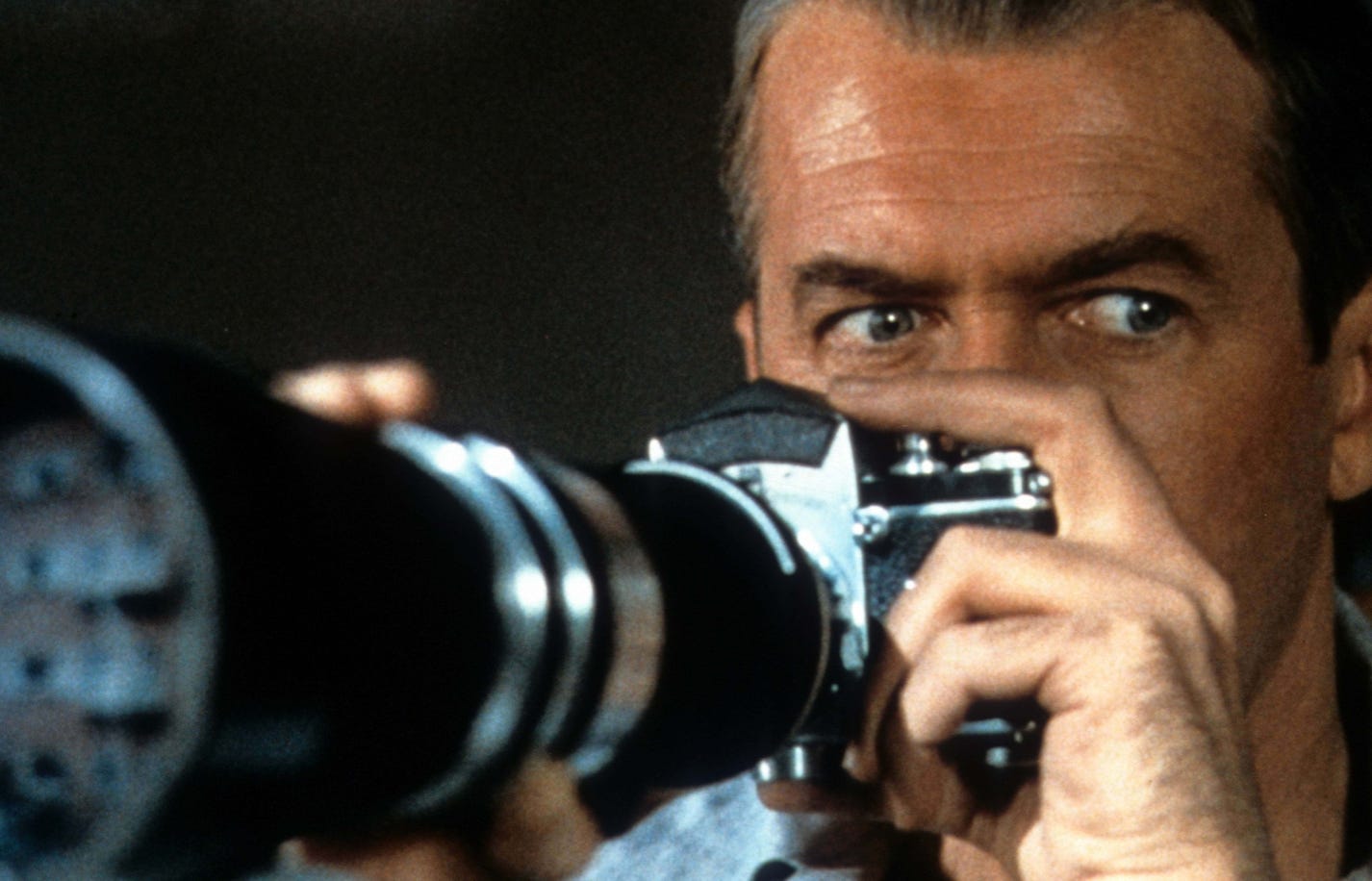
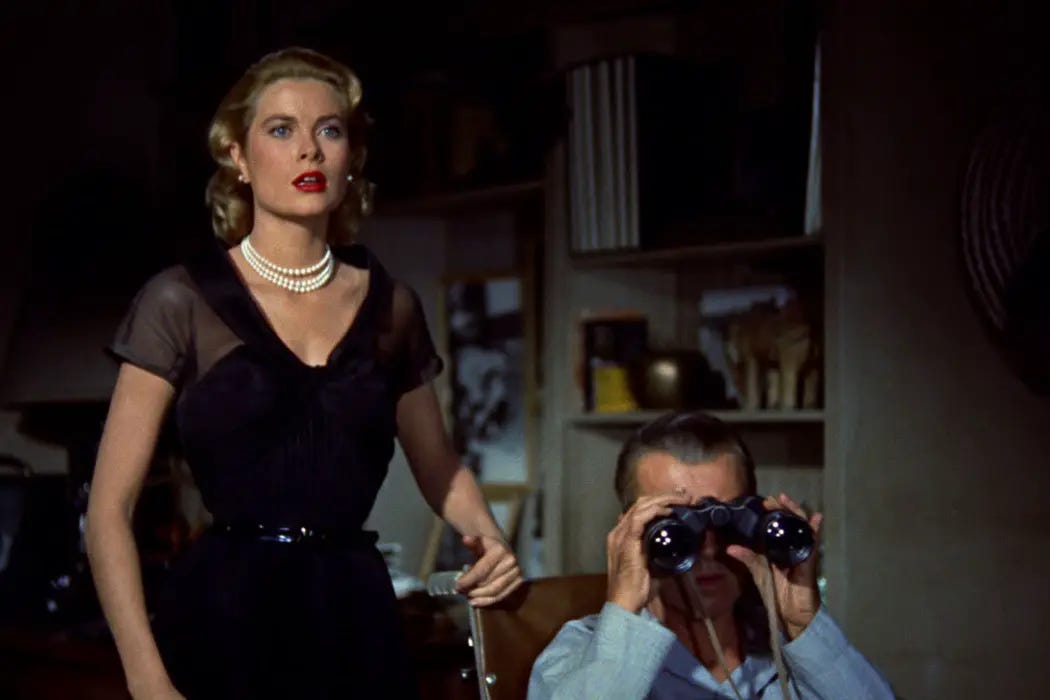
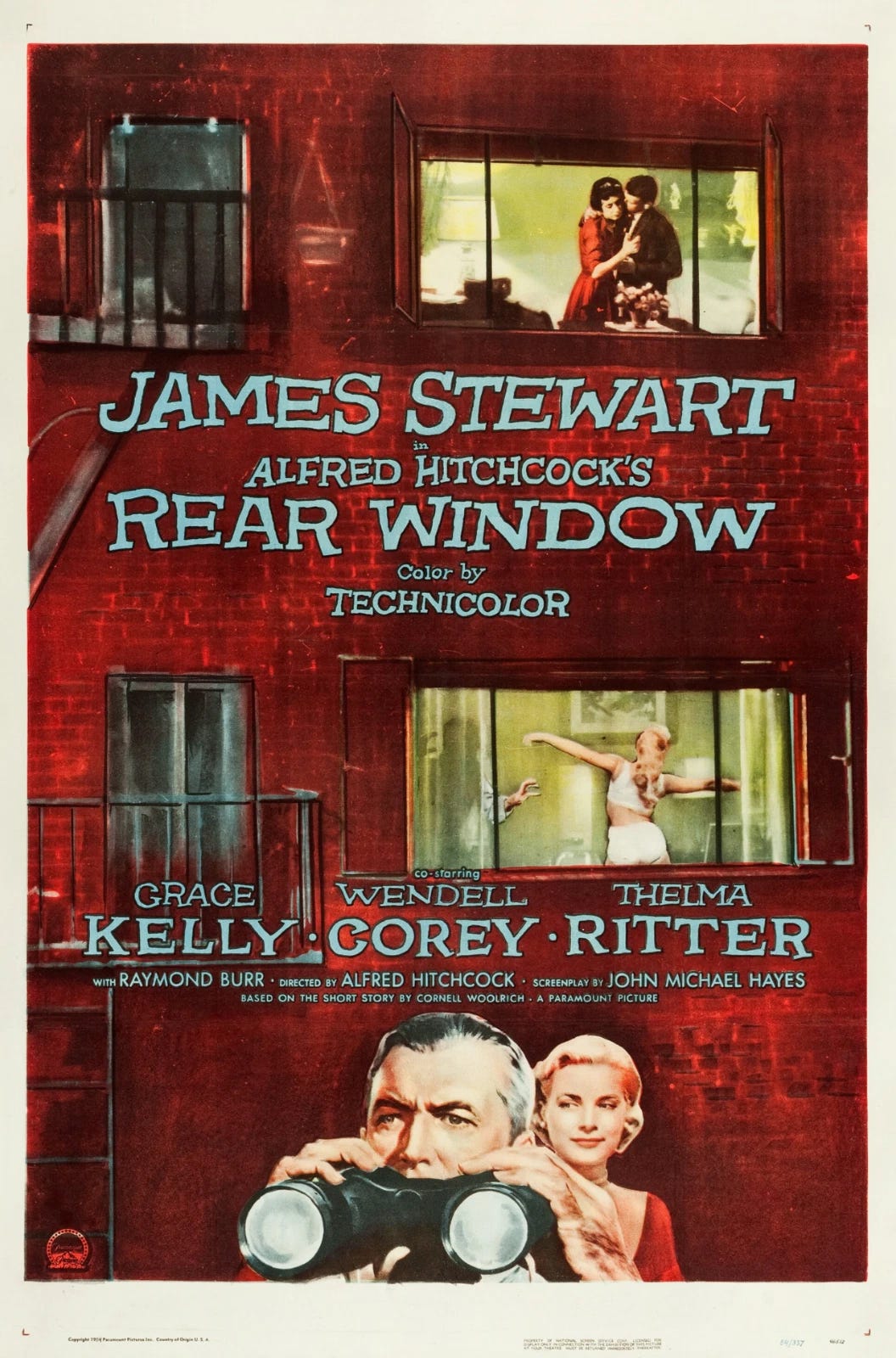
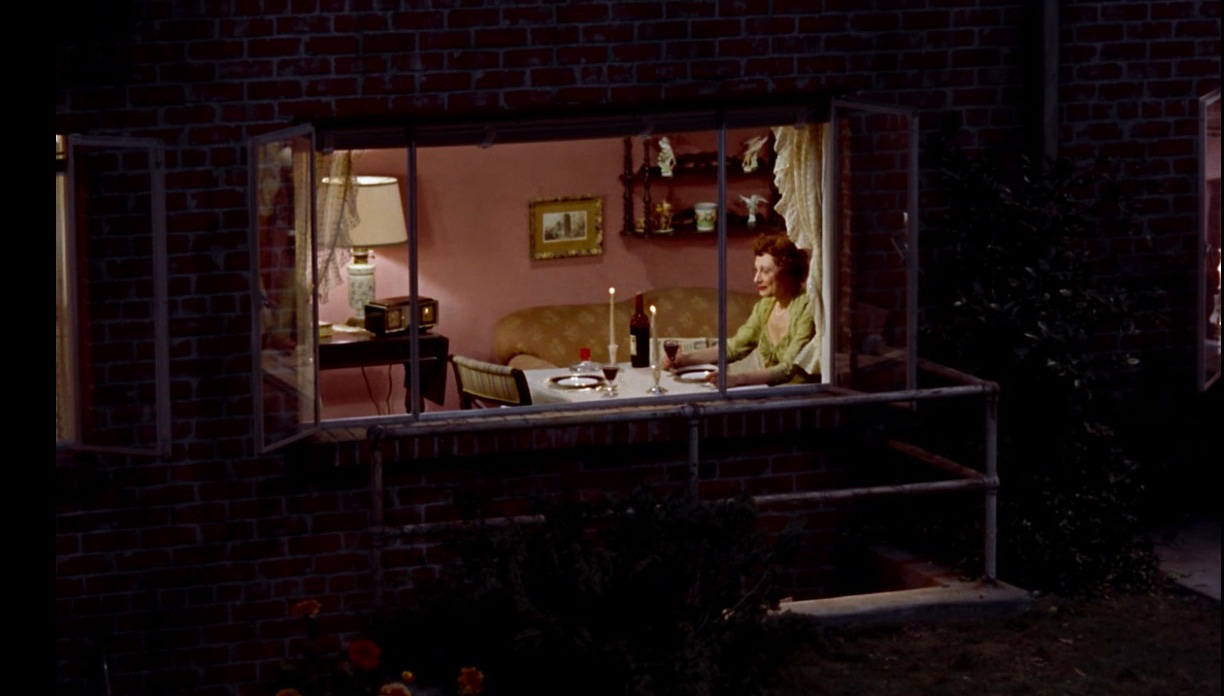
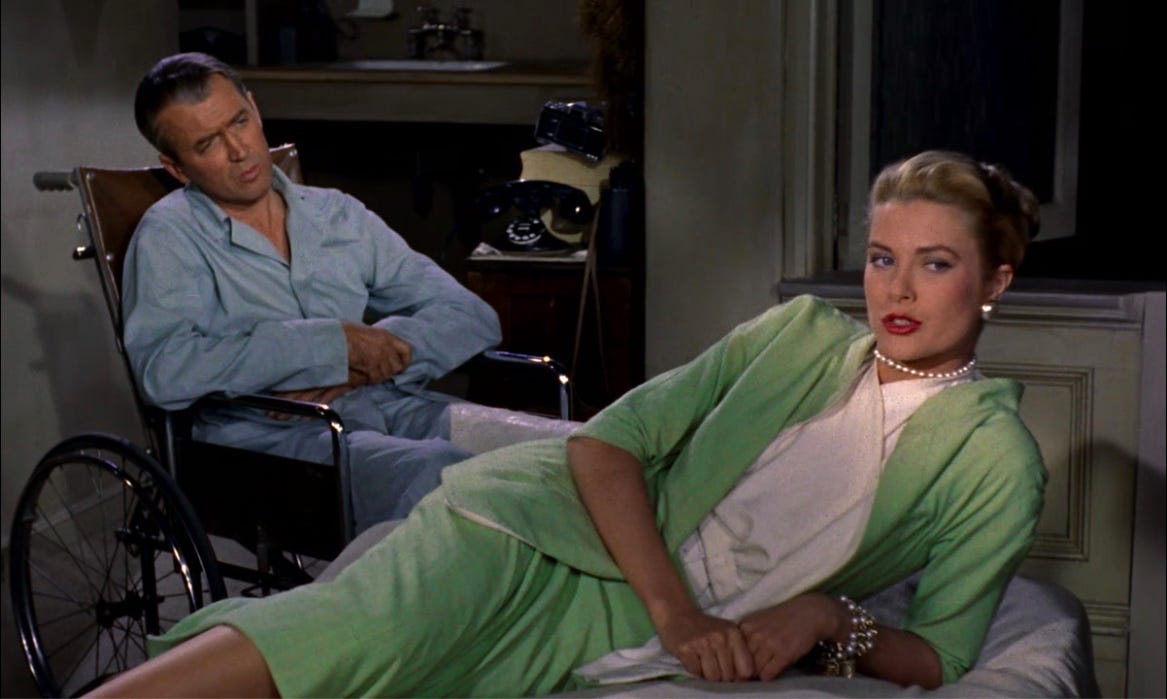
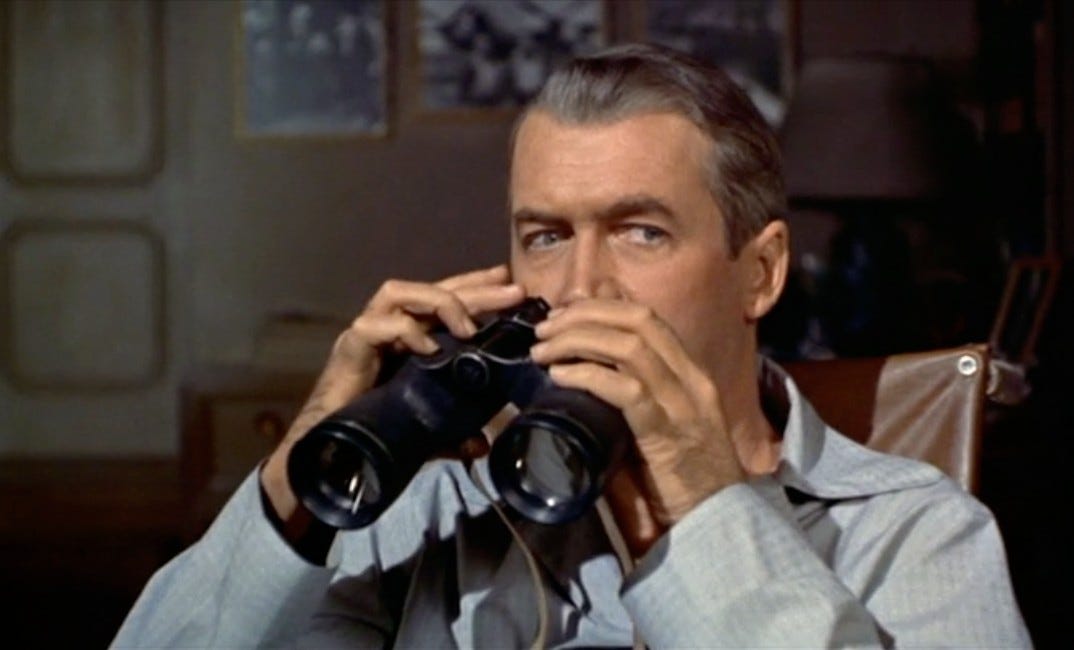

Everything you just said… plus Thelma Ritter!
It was a pivotal film for me that lead to months of surveilling my neighbours from my rooftop… I was hook gluing to write about it too but you beat me to it.